The most established French fashion magazine, Elle, has released the 100th issue of its Taiwanese edition. To celebrate the milestone, the 100 covers published since 1991 will be on display at Eslite Bookstore on Tunhua Road beginning tomorrow through the end of the month.
A book of the best photographs from Elle editions worldwide will also be available in a limited edition of 2000 copies.
The cover exhibition is not meant to be eye candy only. Inasmuch as the magazine itself has evolved along with Taiwanese women over the past nine years, the exhibition is also meant to reflect this evolution.
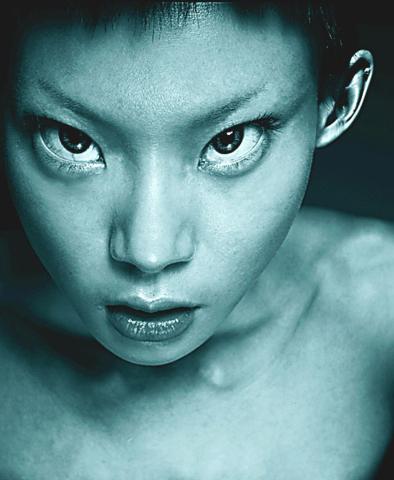
?ooking at the covers, it is obvious that during the first few years the magazine was creating fashion,?says Lena Yang, chief editor at Elle Taiwan. ?ictures were more elaborate, models more sophisticated, make up heavier. Today, fashion is part of everyday life and covers reflect that. Women look more natural. Models are not necessarily perfect but reveal their personality.?P>
Elle was the second international fashion magazine ?after Harper's Bazaar ?to set up shop in Taiwan. At that time, Taiwanese women were still somewhat unsophisticated in the ways of fashion. Elle showed the way and many women chose to follow.
?ack then, women were a bit lost,?Yang says. ?hey only knew big brand names and would stick to these. Today, brand culture is established and women have their own opinion. They ask information about style and how to mix and match.?P>
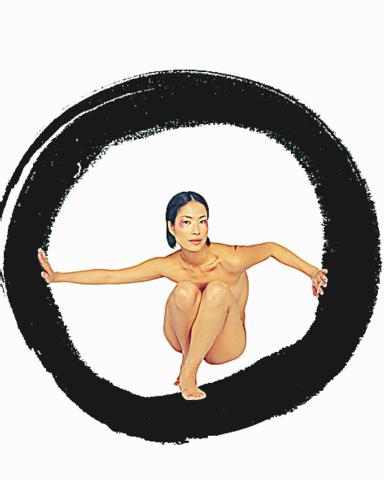
Taiwanese women's new concern ?in fashion matters ?is the growing local business. ?hey want to know which way young designers have chosen, how they manage to express their own identities, and if local fashion can, one day, break through to the international scene.?
The cover exhibition also documents to some extent the evolution of the local fashion scene over the past decade. There are two generations of Taiwanese designers. Isabel Wen, Shiatzy, and Lu Fong Chi have been established for two decades. Wen and Shiatzy both have stores on Ta-an Road. Chi's collections are available from Sunrise department store.
Younger designers like To Tang-huang or Lin Kuo-chi are on display at Id_e Department Store, which dedicates a whole section to up-and-coming local designers, and have skyrocketed in popularity among locals over the past year or so.

Yang credits their surge in popularity to a shift in their own attitudes. ?hey were cornered by their Chinese origin, thinking that their creations had to reflect their own culture,?she says. ?hen they set themselves free from that and opened up to the world. Combining various influences, bringing opposites together give a richer creation. That is very obvious in the second part of our exhibition.?P>
Fashion photographers from London, New York, Tokyo and Taipei ?currently working for the biggest magazines around the world ?were invited to give their interpretation of women and fashion trends in the coming century. Most of them focused on the meeting of Eastern and Western civilizations as a defining theme, Yang said.
Some of their observations also crossed gender and generational barriers. A very striking picture shows an 80-year-old woman with a newborn child, signifying that in the future, beauty and fashion will no longer clash with age. Taiwanese photographer Schockley Hung worked on the melting of sexes, putting forth the concept that beauty can be masculine and feminine at the same time.
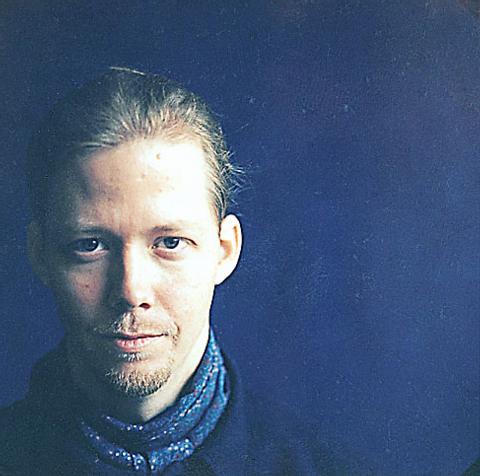
The book that Elle Taiwan will sell at the exhibit is meant to recount the main events of the end of the 20th century as seen through the evolution of Elle magazine since 1947. Elle compiled 100 of the best pictures published in the different editions of Elle worlwide, with 20 pictures coming from Elle Taiwan.
The history of fashion magazines in Taiwan is very short. The oldest one ?Cita Bella ?started 15 years ago. When the first international magazines arrived in Taiwan they had a hard time establishing themselves. ?n Western countries, women grew up with their mother's magazines lying on the table. It was not the case in Taiwan. Women did not think it was necessary to buy that type of press.?P>
This changed with the new generation. Women who are 30 years old today were in their teen-age years when fashion magazines first appeared. ?hey got into the habit of buying women's magazines. Now it is part of their lives. They need information on fashion, lifestyles, state of mind.?P>
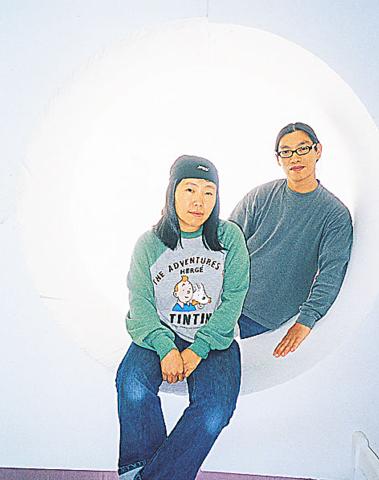
Starting this month, Elle Taiwan will have a new layout, a change in writing and pictures. ?n the future women will open more and more to the world. They will question themselves even more,?Yang said.
?he fight for our rights is not over but almost. We have established most of them. Women are now in search of happiness. Not only for themselves, though. They want to take direct action within society. ... We see next century women as sweet but strong, happy and healthy.?P>
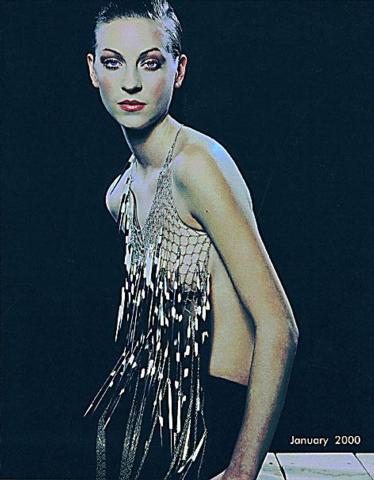
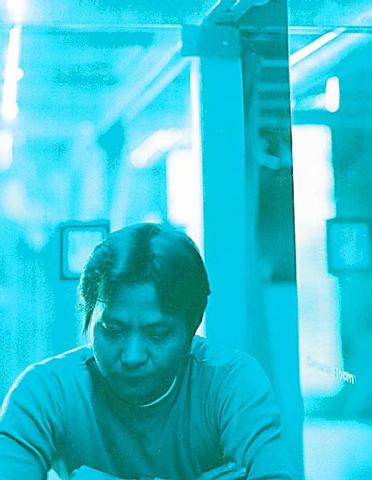

June 9 to June 15 A photo of two men riding trendy high-wheel Penny-Farthing bicycles past a Qing Dynasty gate aptly captures the essence of Taipei in 1897 — a newly colonized city on the cusp of great change. The Japanese began making significant modifications to the cityscape in 1899, tearing down Qing-era structures, widening boulevards and installing Western-style infrastructure and buildings. The photographer, Minosuke Imamura, only spent a year in Taiwan as a cartographer for the governor-general’s office, but he left behind a treasure trove of 130 images showing life at the onset of Japanese rule, spanning July 1897 to

One of the most important gripes that Taiwanese have about the Democratic Progressive Party (DPP) is that it has failed to deliver concretely on higher wages, housing prices and other bread-and-butter issues. The parallel complaint is that the DPP cares only about glamor issues, such as removing markers of Chinese Nationalist Party (KMT) colonialism by renaming them, or what the KMT codes as “de-Sinification.” Once again, as a critical election looms, the DPP is presenting evidence for that charge. The KMT was quick to jump on the recent proposal of the Ministry of the Interior (MOI) to rename roads that symbolize

On the evening of June 1, Control Yuan Secretary-General Lee Chun-yi (李俊俋) apologized and resigned in disgrace. His crime was instructing his driver to use a Control Yuan vehicle to transport his dog to a pet grooming salon. The Control Yuan is the government branch that investigates, audits and impeaches government officials for, among other things, misuse of government funds, so his misuse of a government vehicle was highly inappropriate. If this story were told to anyone living in the golden era of swaggering gangsters, flashy nouveau riche businessmen, and corrupt “black gold” politics of the 1980s and 1990s, they would have laughed.
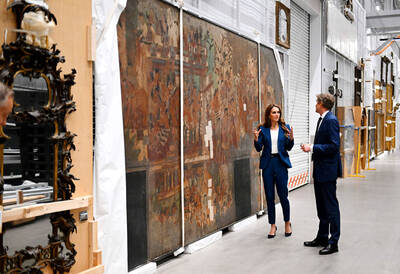
Imagine being able to visit a museum and examine up close thousand-year-old pottery, revel alone in jewelry from centuries past, or peer inside a Versace bag. Now London’s V&A has launched a revolutionary new exhibition space, where visitors can choose from some 250,000 objects, order something they want to spend time looking at and have it delivered to a room for a private viewing. Most museums have thousands of precious and historic items hidden away in their stores, which the public never gets to see or enjoy. But the V&A Storehouse, which opened on May 31 in a converted warehouse, has come up